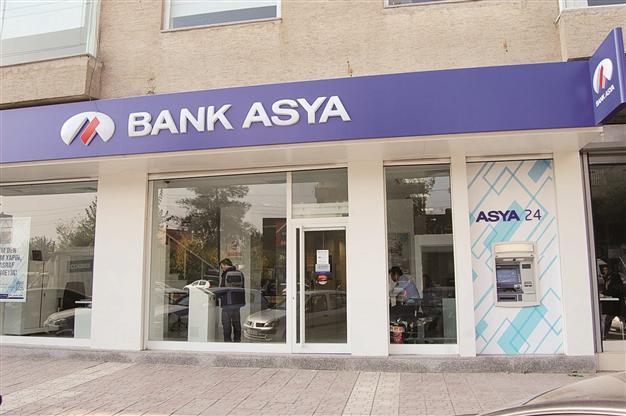Exclusivity deal with Qatari bank ends, says pro-Gülen bank
ISTANBUL - Reuters

State-owned companies and institutional depositors loyal to Erdoğan withdrew 4 billion liras, some 20 percent of the bank’s total deposits, according to media reports.
Islamic lender Bank Asya said an exclusive deal with Qatar Islamic Bank (QIB) to acquire a stake in the Turkish lender was annulled, opening the way for alternative suitors.Bank Asya attempted earlier this year to form a partnership with QIB but sources close to the matter told Reuters last month that QIB and Bank Asya had ended the talks after a disagreement over price.
The lender said in a statement to the Istanbul stock exchange that the exclusivity deal with QIB, under which Bank Asya could not pursue an offer from another potential buyer, was terminated as of Aug. 8 so it could receive formal bids from Turkish investors.
Deputy Prime Minister Ali Babacan said on Aug. 6 that state-run Ziraat Bank, which is looking to launch its own Islamic banking unit, could buy Bank Asya, but an advisor to Prime Minister Tayyip Erdoğan, Yiğit Bulut, later denied such a plan. In the late hours of Aug. 6, Bulut said Ziraat Bank has no plans to buy Bank Asya that Erdoğan knows of, belying Babacan, who confirmed the talks earlier the same day.
“There is no will, attempt or questioning regarding the acquisition of Bank Asya by the state within our dear prime minister’s knowledge,” Bulut said.
Just hours before Bulut’s denial of the sale negotiations, Babacan, the top government figure in charge of economy, had said Ziraat Bank is interested in buying Bank Asya as part of the government’s plans to enter the Islamic finance sector.
No significant impact expected from cancelling
Babacan stood by his comments on Aug. 7, saying he had clearly explained developments regarding Bank Asya a day earlier and there was no new information. Ziraat Bank is seen as the most likely partner for Bank Asya but the two banks have not officially begun talks, sources familiar with the matter said last month.
Bank Asya has seen its profits and capital base collapse since it found itself at the center of a power struggle between Prime Minister Erdoğan and his former ally Fethullah Gülen. State-owned companies and institutional depositors loyal to Erdoğan have withdrawn 4 billion Turkish Liras, or some 20 percent of the bank’s deposits, earlier in the year, according to media reports.
The bank’s future looked dim after the authorities cancelled its tax collection and social security payment deals on Aug. 7, a sign according to observers that the government may be a step closer to winding down the lender. The bank also said in a separate statement on Aug. 8 that it does not see a significant impact from the Social Security Institution cancelling its contract with the bank, effective Sept. 8.
















